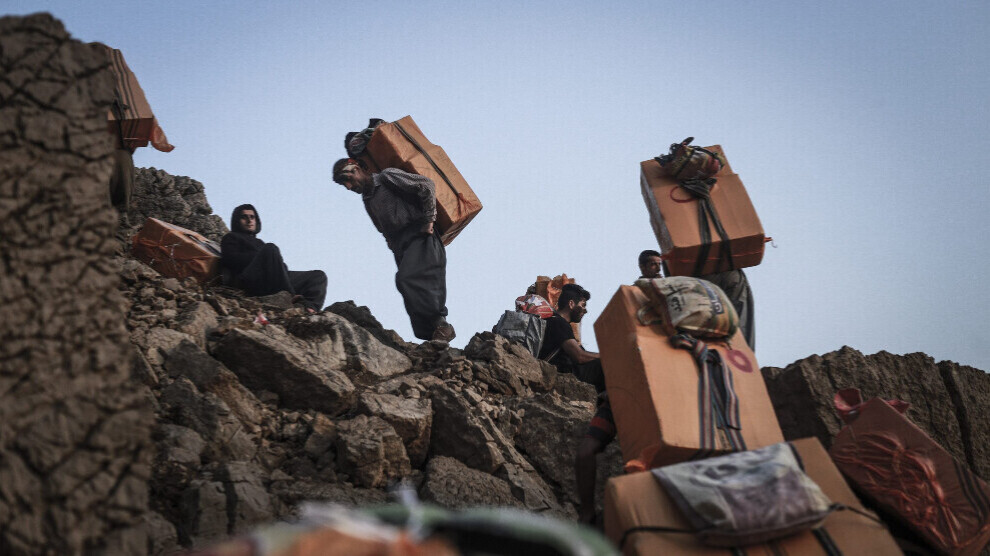Kolbar injured by Iranian forces in Kermanshah
Kolbars and kasibkars are targeted systematically by Iranian and Turkish security forces. Each year, dozens of them are killed with no punitive measures being taken.
Kolbars and kasibkars are targeted systematically by Iranian and Turkish security forces. Each year, dozens of them are killed with no punitive measures being taken.

The Kurdistan Human Rights Network (KHRN) reported that Iranian border guards opened fire on a group of kolbars in the border area of Nowsud, Kermanshah province, on 30 October, seriously injuring kolbar Erfan Moradi.
According to the report, the border guards opened fire on the kolbars at close range and without warning, leaving Moradi critically injured with a bullet wound to the head.
Following the incident, Moradi was transferred to the special care unit of Taleghani Hospital in Kermanshah. Moradi is from Javanrud in Kermanshah province and is a father of three.
This incident comes just days after another incident on 28 October in which at least 14 kolbars from Javanrud and Salas-e Babajani were wounded by border guards’ gunfire in the same border area.
Kolbars and kasibkars are targeted systematically by Iranian and Turkish security forces. Each year, dozens of them are killed with no punitive measures being taken. Apart from systematic attacks, kolbars are struggling to make a living under harsh weather conditions, dangerous geographical locations and mines.
Kolber or “kolbar” is derived from the Kurdish words “kol” and “bar”. Kol means “back”, bar means “load”. Kolbars make their living by carrying goods on their backs across dangerous borders. The goods they carry include cigarettes, mobile phones, blankets, household items, tea and rarely alcoholic beverages. They have to pass through dangerous roads between South Kurdistan and East Kurdistan. The goods brought are sold at relatively high prices in commercial centres such as Tehran. However, kolbars who carry out the transportation of goods at the expense of their lives receive a very small amount of wages.
Kasibkar refers to those people who receive the goods kolbars carry to South Kurdistan and find buyers in towns.